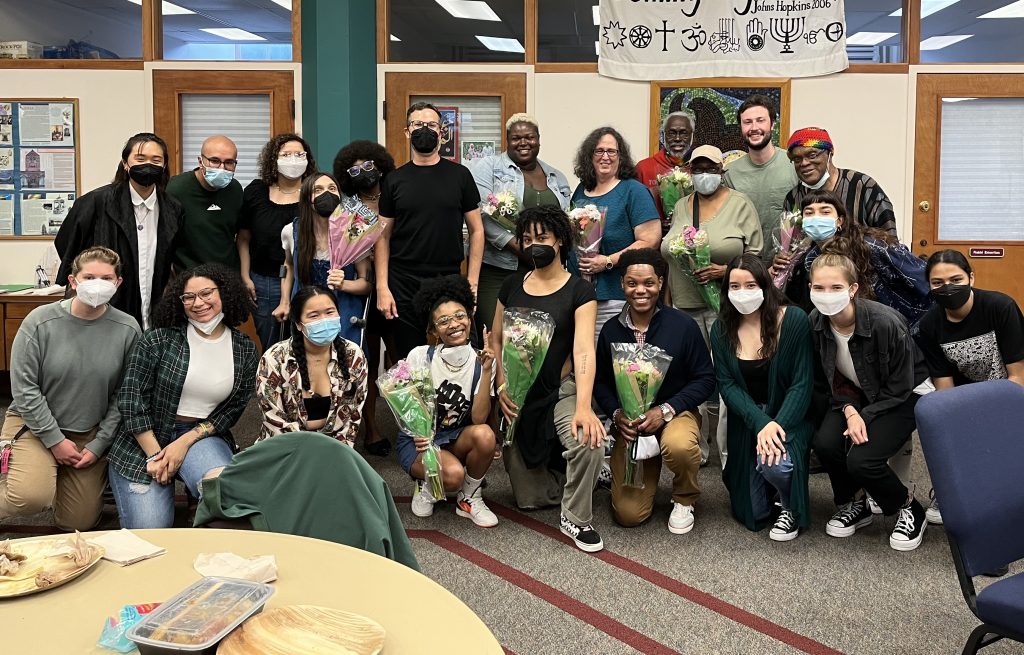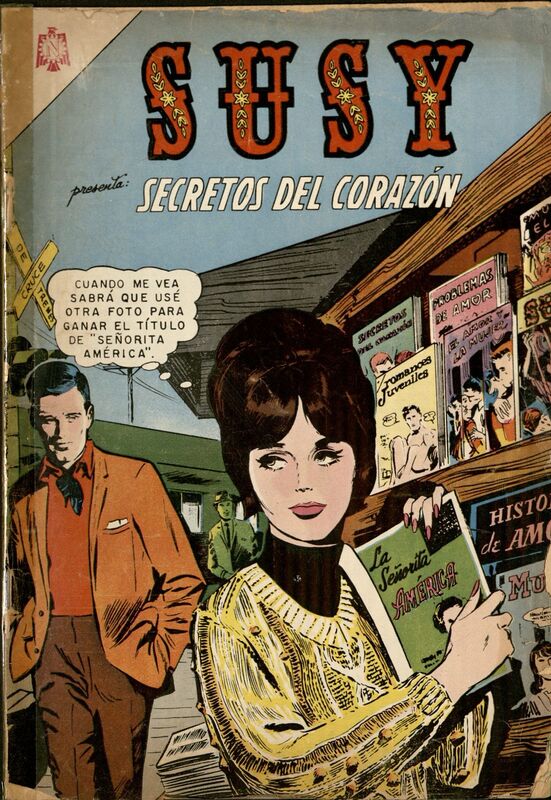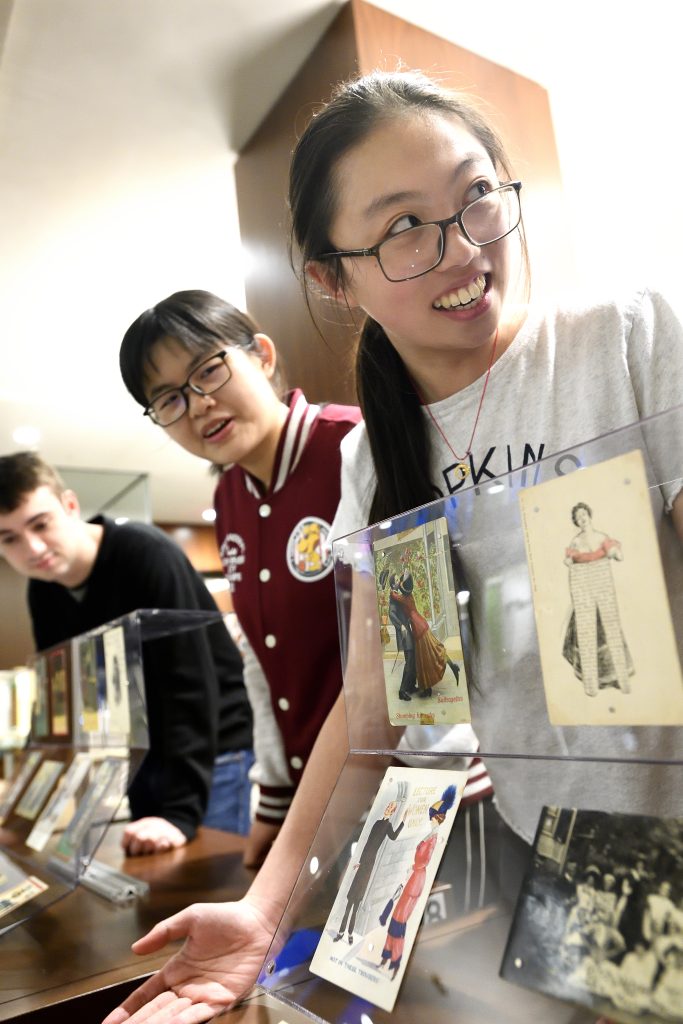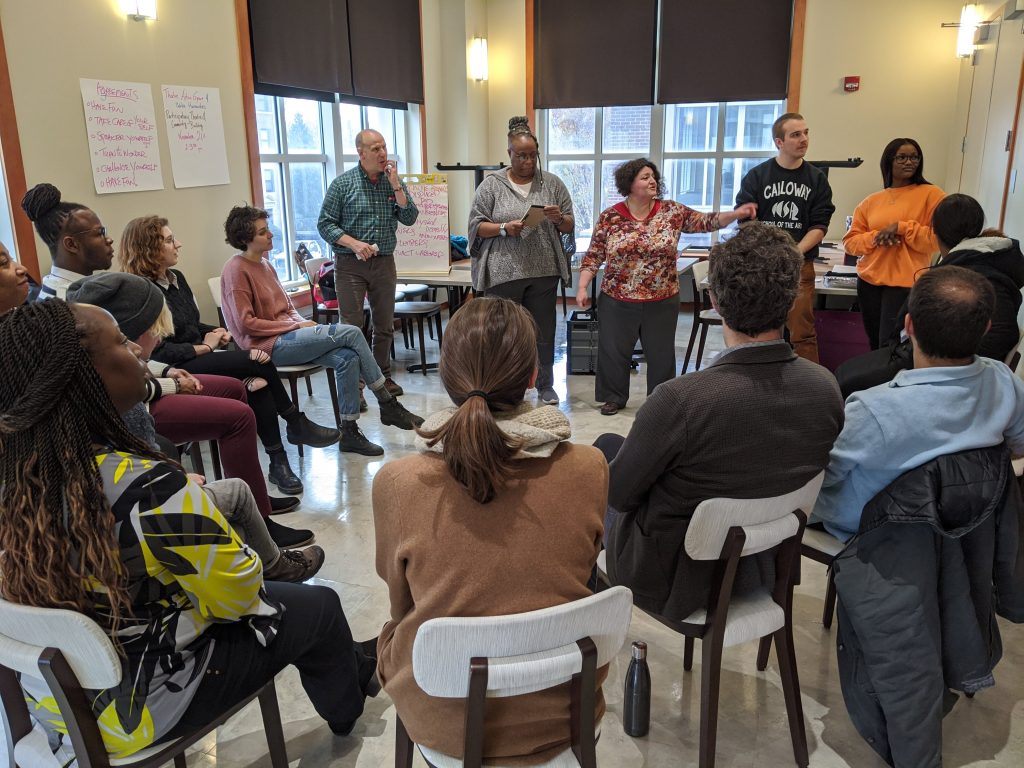The Tabb Center offers a variety of undergraduate courses in partnership with the Program in Museums and Society. Students learn to analyze and interpret primary sources, drawing on and adding to our materials in Special Collections.
Queer Oral History (Spring 2022)
Engaging critically with queer and oral history theory, students broke into groups and coordinated interviews with 15+ queer Baltimore residents with the aim of archiving a queer reimagining of the city. The course culminated with a listening party at which students shared their audio portraits and website with community members.
View the student website Out In The Open: A Baltimore Queer Oral History Project

Romancing the Comic Book (Intersession 2021)
Romance comic books, popular from the late 1940s to the mid-1970s, introduced teenagers to the joys and heartache of love. Students enrolled in Romancing the Comic Book learned how these publications transformed from a much-mocked genre to an essential artifact that reveals much about mid-century American life and culture. Each class session incorporated hands-on activities with our collections and students collaborated on an online exhibition that showcases the history of the genre.
View students’ online exhibit: Romancing the Comic Book

Queer Sixties (Spring 2021)
This course examined U.S. queer history in the period immediately before the gay liberation movement, highlighting homophile politics, drag and leather subcultures, transgender organizing, bar- and street-based publics, civil rights activism, and a variety of subcultural practices. It examined how we have come to narrate queer history and investigates the ways archival practices shape contemporary conceptions of queer life.
Queer & Trans Public History (Spring 2020)
How do queer and trans people re-envision the past to forge solidarities in the present and map potential futures? This course drew on studies of queer affect, queer temporality, trans embodiment, and performance studies to explore how queer people shape collective memory through public history, broadly defined to include digital archives, documentary film, performance, walking tours, and site-specific installations.
Votes and Petticoats (SOUL 2019)
2020 marked the 100th anniversary of the ratification of the 19th Amendment, giving the majority of American women the right to vote. The national debate over women’s suffrage was shaped by ephemera like postcards, films, pins, and even board games. Students enrolled in this course explored artifacts and works on paper that were created by fans and foes of women’s suffrage and discovered how “votes for women” triumphed over fears of “petticoat government.”
View students’ online exhibit: Votes & Petticoats

Public Humanities and Social Justice (Fall 2019)
How can scholars and activists mobilize the humanities to generate social change? This course introduced students to humanities projects that encourage democratic participation among publics more broadly conceived than the academy, focusing on indigenous research methods, place-based storytelling, collaborative ethnography, and interactive theater. Focused on several case studies in Baltimore, we explored projects that enable marginalized populations to frame research questions, project design, and interpretation with the goal of generating social change.

Cooks & Their Books (SOUL 2018)
This course offered a focused introduction to the skills and challenges of curating an institutional rare books collection. Concentrating on the cookery collections held by Special Collections, students learned how to assess and interpret rare books and collections of rare books, and used their knowledge to select and advocate for the purchase of rare cookbooks to add to the shelves of the George Peabody Library.
